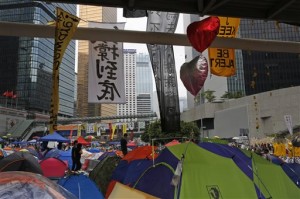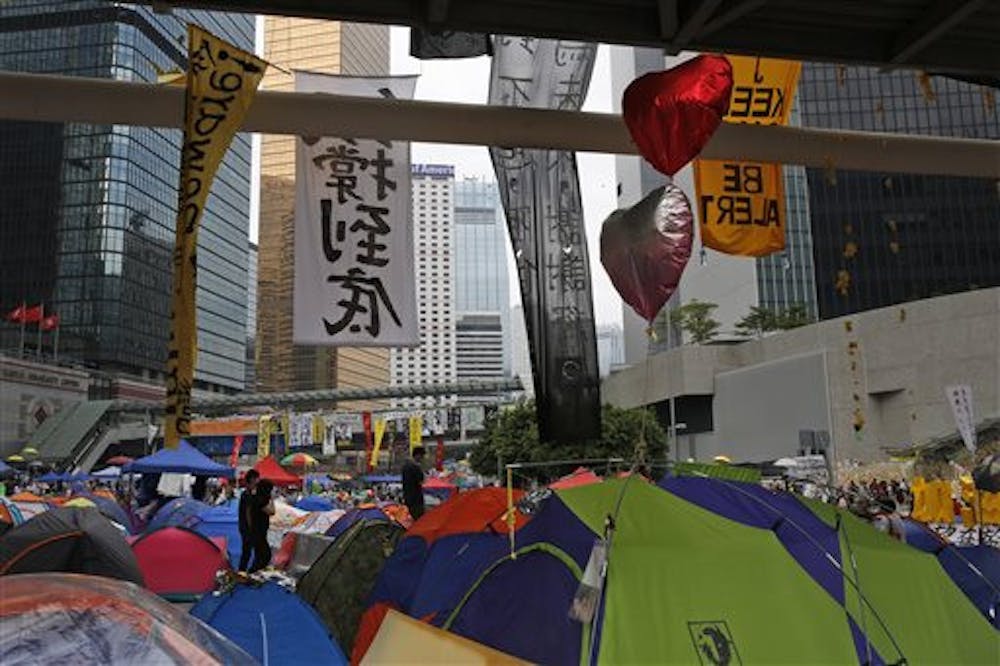By Roman Orsini
Staff Writer

Hong Kong has been beset by protests since pro-democracy activists took to the streets last month. Demonstrators in the Chinese-controlled city number over 100,000, and their movement has been dubbed “The Umbrella Revolution.” Protesters are demanding that Hong Kong residents may vote for any chief executive they choose, without prior approval from Beijing.
On Sunday, Aug. 31, a Chinese election plan for Hong Kong was announced, calling for potential candidates to be vetted by “a committee stacked with party supporters,”according to the Economist. The plan ensures that Hong Kong will only be run by those loyal to the Communist Party. Hong Kong’s current leader, C.Y. Leung, supports the Beijing plan and has come under fire by the protesters as a result.
Leung attempted to stall the protests by opening talks with the activists, but to no avail. The protesters, mostly from local universities and schools, have modeled their activities from the Occupy Wall Street movement, camping out along main streets. Some have threatened to occupy government offices, according to Reuters.
The large-scale demonstrations have made it impossible for authorities to fully break them up. Police use of tear gas on protesters has only broadened sympathies for the Umbrella Revolution and increased its ranks. Hong Kong’s press is also free to report should a violent crackdown take place. For these reasons, authorities are wary of the use of force in containing the movement.
A number of celebrities, including American saxophone player Kenny G (of great popularity in China), arrived in Hong Kong to show support for the demonstrators. Following their appearances, however, Chinese officials ordered the state-run media to omit any mention of the celebrities, according to CNN.
In 1997, Great Britain ceded control of Hong Kong to China under condition that it be granted greater autonomy. The “One Country, Two Systems” policy was set to ensure Hong Kong have its own legal and financial systems, independent of mainland China. The city maintains a free press, the right to protest and independent courts.
This duality in governance has generated conflict between Hong Kong’s residents and the Chinese government in the past. In 2003, protesters forced Beijing to back off tough security laws, and in 2012, they opposed new education laws, according to the Economist.
Under the current leadership of Xi Jinping, China is unwilling to grant Hong Kong any Western-style democracy, despite the city’s unique status, as this could potentially undermine government authority in the country at large.







